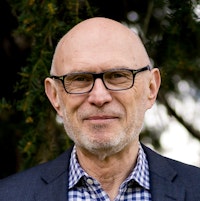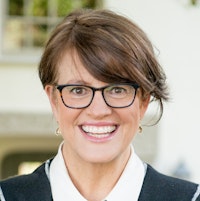
How is it possible that I can splendidly succeed in variety of endeavors, and then at the same time fail as a human being?
Show Notes
For years, Yale undergraduate students have lined up to take a wildly popular course called Life Worth Living. Bucking the highly competitive tone you might expect at an Ivy League school, the class teaches students to look beyond traditional markers of success for deeper meaning. Theology professor Miroslav Volf is one of the co-teachers, and also one of the co-authors of a book version of the course that came out last year called “Life Worth Living: A Guide to What Matters Most.” Podcast and TV host Kelly Corrigan invited Volf to introduce the book and start an extended and lively conversation with a wide variety of writers and thinkers at the 2023 Aspen Ideas Festival. After setting the stage with Volf, Corrigan poses probing questions to Mónica Guzmán, the author of “I Never Thought of It That Way” and a senior fellow at Braver Angels, James Ijames, a playwright who won a 2022 Pulitzer for his play “Fat Ham,” Alexandra Reeve Givens, a lawyer and CEO of the Center for Democracy and Technology, and Rainn Wilson, the actor who played Dwight Schrute on the TV show “The Office” and recently wrote a book about spirituality called “Soul Boom.”
Explore
Related episodes


Teenagers and young adults today are dealing with challenges their parents never experienced and couldn’t have prepared for. Nobody has a map and the road to resolution can be bumpy for all involved. Two adolescent psychologists published books last year aimed at helping parents understand and empathize with what their kids are going through and guiding everyone toward hel...


Living a happy life isn’t as simple as having a smile on your face all the time. We often think that our negative emotions should be minimized and repressed, but acknowledging and managing them is actually key to achieving a healthy baseline. Author and Harvard professor Arthur Brooks studies the latest happiness research across behavioral science, philosophy, psychology,...


The human capacity for empathy allows us to communicate, collaborate and understand each other. But we all know empathy isn’t always easy, and we can feel worn down by the effort. MIT professor and researcher Sherry Turkle studies empathy, and particularly how technology can undermine our natural human tendencies to connect. After several books and many decades of work com...


When Duke divinity school professor Kate Bowler wrote her best-selling memoir, “Everything Happens for a Reason (and Other Lies I’ve Loved),” she was grappling with the consequences of a shocking cancer diagnosis. Many of the common messages about hardship, tragedy and success that she’d grown up hearing – and even studied as a religious scholar – no longer seemed to make...


After millennia of human existence, we’re still figuring out and talking constantly about one of our most fundamental behaviors – sex. Despite the sexual revolution of the 60s and 70s and the growth of sex positivity in recent decades, a lot of people still report having a lot of bad sex. The reasons for that are varied and multiple, but culture has a role to play, and we...












